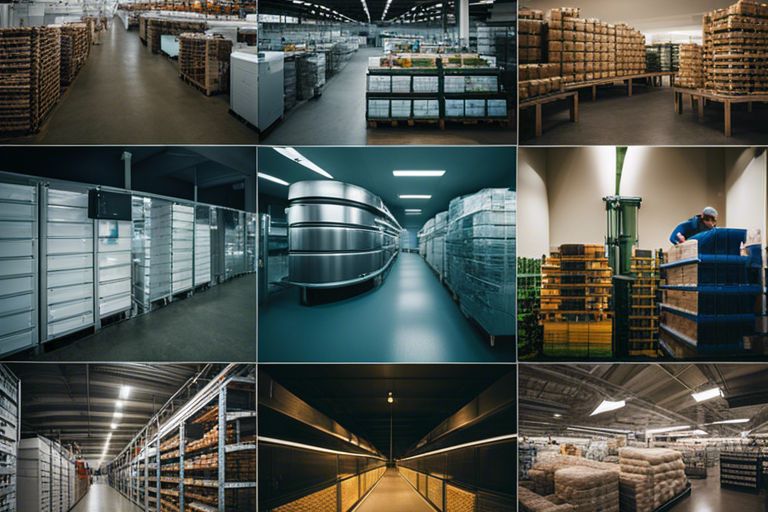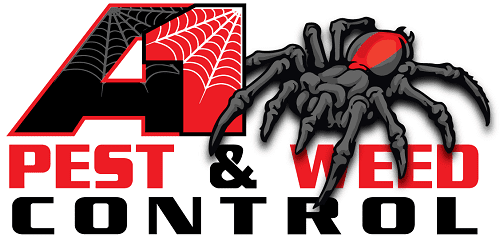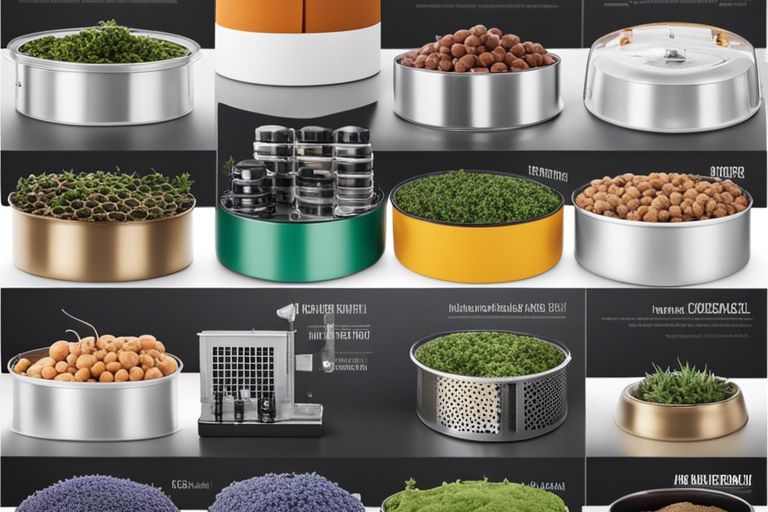Over recent years, Melbourne has seen a surge in the need for industry-specific pest management strategies due to the diverse range of businesses flourishing in the city. From restaurants and hotels to warehouses and manufacturing plants, each industry faces unique challenges when it comes to pest control. It is imperative for business owners and managers to understand the specific pest threats within their industry and implement tailored pest management solutions to ensure a pest-free environment while maintaining compliance with industry regulations.
Key Takeaways:
- Importance of Pest Management: Effective pest management is crucial for industries in Melbourne to ensure compliance with regulations, maintain a safe working environment, and protect products from contamination.
- Industry-Specific Solutions: Different industries require tailored pest management solutions based on the specific pests that pose a threat, such as rodents in food processing facilities or termites in timber yards.
- Preventive Measures: Implementing preventive measures, such as regular inspections, proper waste management, and sealing entry points, can help industries in Melbourne minimize the risk of pest infestations.
- Professional Expertise: Engaging the services of pest management professionals with experience in industry-specific pest control is vital for effective prevention and eradication of pests in industrial settings.
- Regular Monitoring and Maintenance: Industries in Melbourne should establish a routine pest monitoring and maintenance schedule to proactively address any pest issues and prevent them from escalating.
The Fundamentals of Pest Control
Clearly, pest control is a critical aspect of maintaining a healthy and safe environment in any industry. In the matter of pest management in Melbourne, it is imperative to understand the types of pests that are commonly found in the area.
Types of Pests in Melbourne
- Ants
- Cockroaches
- Rats
- Spiders
Methods of Pest Control and Management
Any effective pest control and management strategy in Melbourne should involve a combination of preventive measures, regular inspections, and targeted treatments. It is crucial to work with professional pest control experts who have the knowledge and experience to address specific pest infestations effectively.
It is recommended to implement Integrated Pest Management (IPM) techniques, which focus on environmentally friendly solutions and long-term prevention strategies. These may include sealing entry points, reducing food and water sources, and using eco-friendly pest control products. Regular monitoring and follow-up inspections are also imperative to ensure the success of pest management efforts in the long run.
Pest Management in the Food Service Industry
Common Pests in Restaurants and Kitchens
Service industries, such as restaurants and commercial kitchens, are particularly susceptible to pest infestations due to the presence of food and moisture. Some of the most common pests found in these environments include cockroaches, rodents, flies, and ants. These pests not only pose a health risk but also can damage property and tarnish a business’s reputation.
Best Practices for Pest Prevention and Control
Service industries in the food sector should implement rigorous pest management strategies to prevent and control infestations. Regular inspections of the premises should be conducted to detect any signs of pest activity. Proper sanitation practices, such as cleaning up spills promptly, storing food in airtight containers, and disposing of waste regularly, can help eliminate attractants for pests.
The implementation of Integrated Pest Management (IPM) techniques, which combine chemical, biological, and physical control methods, is highly recommended for long-term pest management in the food service industry. By using a combination of strategies tailored to the specific needs of the establishment, businesses can effectively prevent and address pest issues before they escalate.
Pest Management in Healthcare Facilities
Unique Challenges in Healthcare Settings
The management of pests in healthcare facilities presents unique challenges due to the need for strict adherence to health and safety regulations. Pests not only pose a health risk to patients and staff but can also compromise the sterile environment necessary for medical treatment. To effectively address these challenges, healthcare facilities must implement integrated pest management strategies. This approach focuses on prevention, monitoring, and control to minimize the use of pesticides while maximizing effectiveness in pest eradication.
Protocols for Maintaining Hygienic Environments
One of the key protocols for maintaining hygienic environments in healthcare facilities is regular inspections for pest activity. This proactive approach allows for early detection of pests and timely intervention to prevent infestations. In addition to inspections, proper sanitation practices, waste management, and building maintenance are crucial in creating an environment that is unattractive to pests. By creating a clean and well-maintained facility, healthcare settings can significantly reduce the risk of pest infestations and uphold high standards of hygiene.
Settings
Pest Management in Retail and Warehousing
Identifying Vulnerable Points in Retail Spaces
Any retail environment can be susceptible to pest infestations due to the constant flow of people and goods in and out of the space. Identifying vulnerable points in retail spaces is crucial for effective pest management. Common vulnerable points include entry points such as doors and windows, storage areas, and even customer areas like seating and dining spaces.
Regular inspections and monitoring are necessary to detect any signs of pest activity early on. Retailers should also ensure proper sanitation practices and waste management to eliminate attractants for pests. By addressing these vulnerable points proactively, retailers can prevent pest infestations before they become a serious problem.
Integrated Pest Management Strategies for Warehouses
The integrated pest management (IPM) approach is highly effective in warehouses, where large amounts of goods are stored, creating an ideal environment for pests to thrive. The key components of IPM in warehouses include regular inspections, proper sanitation, exclusion techniques, and the use of eco-friendly pest control methods.
The goal of IPM in warehouses is not just to eliminate pests but to prevent future infestations as well. By implementing a comprehensive IPM plan tailored to the specific needs of the warehouse, businesses can ensure a pest-free environment that complies with industry regulations.
The integrated pest management strategies for warehouses focus on long-term solutions rather than quick fixes. By combining preventive measures with proactive monitoring and targeted treatments, warehouses can effectively manage pest issues while maintaining a safe and hygienic work environment.
Pest Management in the Hospitality Industry
Importance of Pest Control in Hotels and Lodging
Industry-specific pest management in the hospitality sector, particularly in hotels and lodging establishments, is crucial for maintaining a positive reputation and ensuring the health and safety of guests. Pests such as bed bugs, cockroaches, rodents, and flies can quickly infest hotel rooms, restaurants, and common areas, leading to unsanitary conditions and potential health risks for guests.
Regular pest control measures are necessary to prevent infestations and protect the reputation of the establishment. Hotels and lodging businesses must uphold high cleanliness standards to ensure guest satisfaction and comply with health regulations.
Customized Solutions for Guest Safety and Comfort
With the constant flow of guests in hotels and lodging facilities, customized pest management solutions are crucial to address specific pest control needs while ensuring the safety and comfort of guests. Integrated pest management strategies that combine prevention, monitoring, and targeted treatment methods are tailored to the unique layout and needs of each establishment.

Regulatory Compliance and Pest Management
Now more than ever, regulatory compliance in pest management is imperative for businesses in Melbourne to ensure the health and safety of their employees and customers. Understanding and adhering to industry-specific legal requirements is crucial to effectively control pests and maintain a pest-free environment.
Understanding Melbourne’s Pest Control Regulations
Compliance with Melbourne’s pest control regulations is vital to protect public health and the environment. These regulations outline the approved methods for pest control, the types of chemicals that can be used, and the qualifications required for pest management professionals. By following these guidelines, businesses can effectively address pest infestations while minimizing the risk of exposure to harmful chemicals.
Adhering to Industry-Specific Legal Requirements
Regulations specific to industries such as food service, healthcare, and hospitality may have additional pest control requirements to prevent contamination and ensure a safe environment for employees and customers. Businesses in these industries must adhere to strict guidelines to pass health inspections and operate legally. Working with a professional pest management company that understands industry-specific legal requirements is crucial for compliance and maintaining a pest-free facility.
Melbourne’s pest management regulations are in place to protect public health and promote safe and effective pest control practices. By staying informed about these regulations and working with experienced professionals, businesses can ensure a pest-free environment that meets industry-specific legal requirements.
New Technologies and Innovations in Pest Management
Advanced Tools for Detection and Eradication
For pest management professionals in Melbourne, staying ahead of the game means embracing advanced tools for detection and eradication. With the advent of new technologies, pest control companies are now equipped with innovative solutions that make the process more efficient and effective.
- On-site SensorsThese sensors can detect pest activity in real-time, allowing for quicker response times and more targeted treatments.
- Remote Monitoring SystemsRemote monitoring systems provide 24/7 surveillance of pest activity, enabling proactive measures to be taken before infestations occur.
- DronesDrones equipped with thermal imaging cameras can identify pest hotspots in large areas, making it easier to pinpoint infestation locations.
Assessing the Effectiveness of Innovative Solutions
Innovative pest management solutions have revolutionized the way we approach pest control in Melbourne. By utilizing cutting-edge technologies, we can now assess the effectiveness of these solutions with more accuracy and precision than ever before.
Assessing the effectiveness of innovative solutions involves gathering data on pest activity, treatment outcomes, and long-term results. By analyzing this data, pest management professionals can make informed decisions on which strategies are most effective for specific pest infestations.
To wrap up
Drawing together the importance of industry-specific pest management in Melbourne, it is evident that proactive measures tailored to the unique requirements of different sectors are crucial in ensuring pest control efficacy. By understanding the specific pests, vulnerabilities, and regulations that apply to industries such as hospitality, food processing, or healthcare, businesses can minimize the risks of infestations and protect their reputation and bottom line.
Engaging professional pest management services that specialize in industry-specific solutions can provide peace of mind and ensure compliance with relevant standards. By prioritizing prevention and deploying targeted interventions, businesses can mitigate the risks posed by pests and maintain a safe and hygienic environment for employees, customers, and visitors. Implementing a strategic pest management plan tailored to the needs of the industry is a key investment in safeguarding the operations and reputation of businesses in Melbourne.
FAQ
Q: What is industry-specific pest management?
A: Industry-specific pest management refers to customized pest control solutions tailored to meet the unique needs of businesses operating in specific industries, such as food processing, healthcare, hospitality, and agriculture.
Q: Why is industry-specific pest management important in Melbourne?
A: Industry-specific pest management is important in Melbourne to ensure the safety of products, uphold hygiene standards, comply with regulations, protect the reputation of businesses, and prevent financial losses due to pest infestations.
Q: What are common pests that affect industries in Melbourne?
A: Common pests that affect industries in Melbourne include rodents, cockroaches, ants, flies, stored product pests, birds, and termites. These pests can cause contamination, damage property, and pose health risks to employees and customers.
How can businesses in Melbourne prevent pest infestations?
A: Businesses in Melbourne can prevent pest infestations by maintaining cleanliness, sealing entry points, storing food properly, conducting regular inspections, implementing monitoring systems, educating employees, and partnering with professional pest management companies for regular treatments.
What are the benefits of hiring a professional pest management company in Melbourne?
A: Hiring a professional pest management company in Melbourne provides businesses with access to trained technicians, advanced treatments, industry-specific expertise, compliance with regulations, tailored solutions, ongoing support, and peace of mind knowing that their pest control needs are in capable hands.

